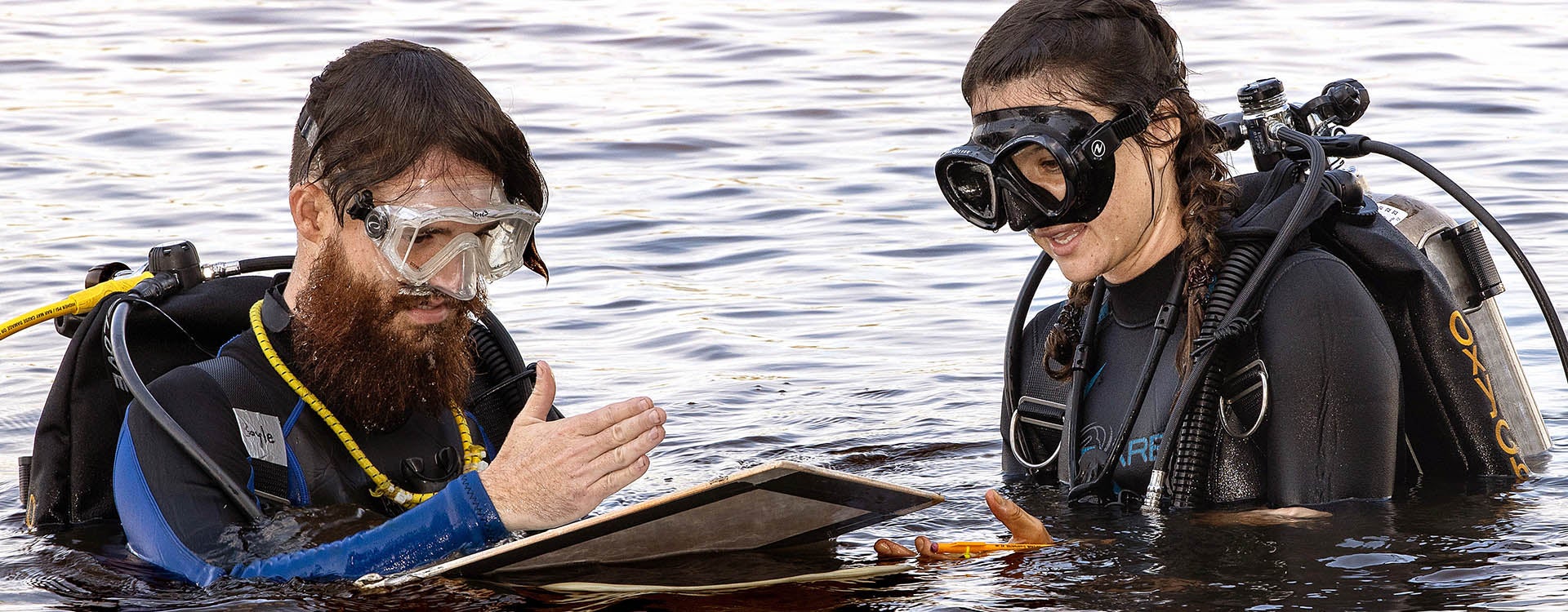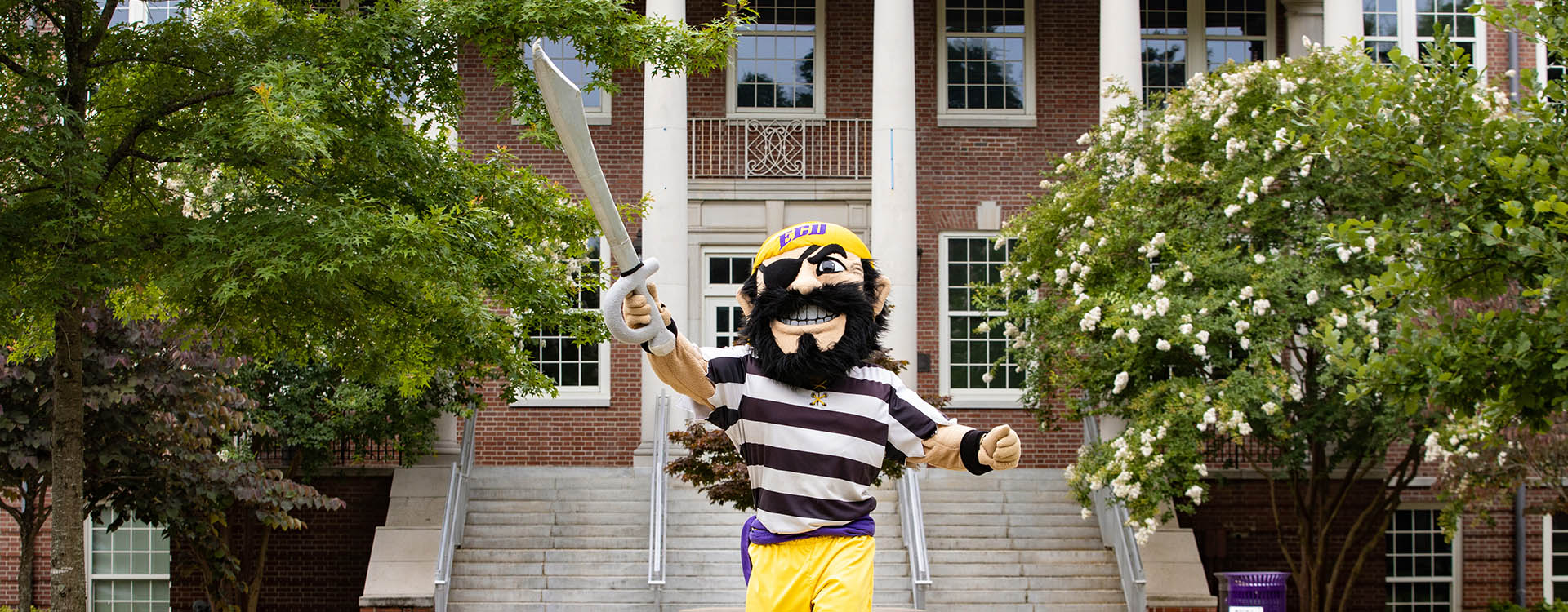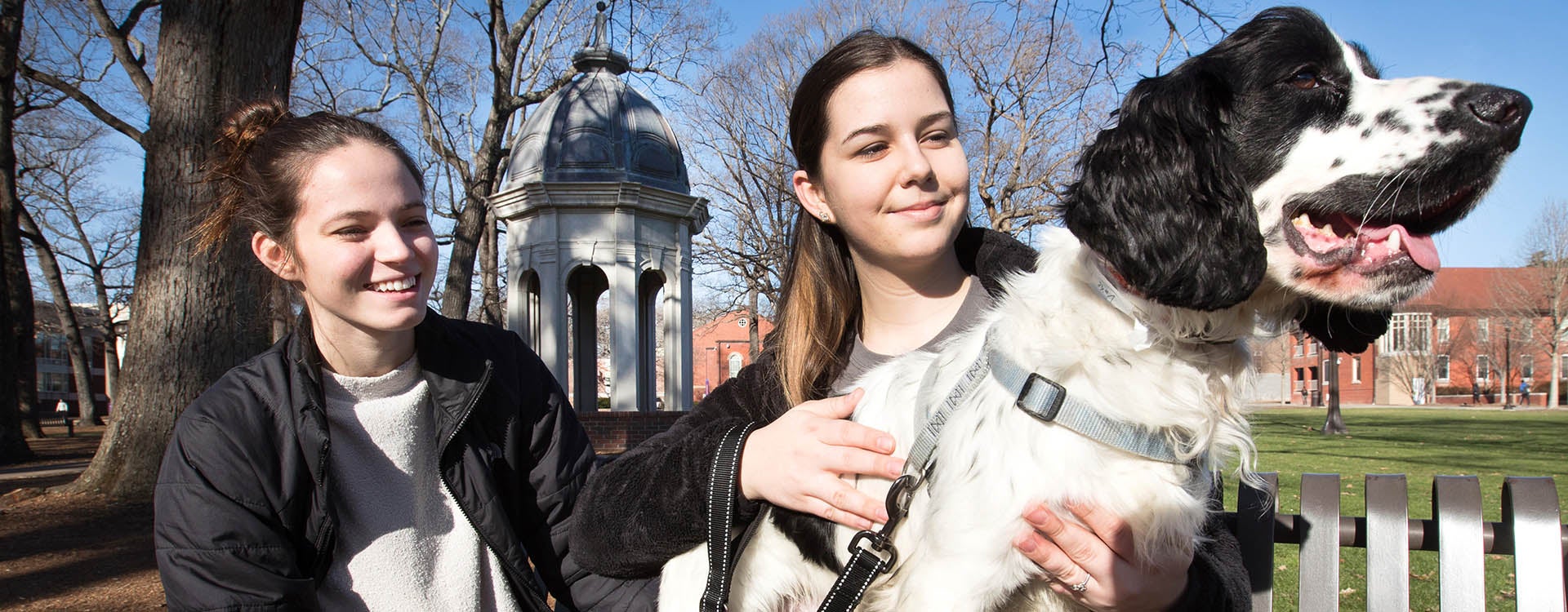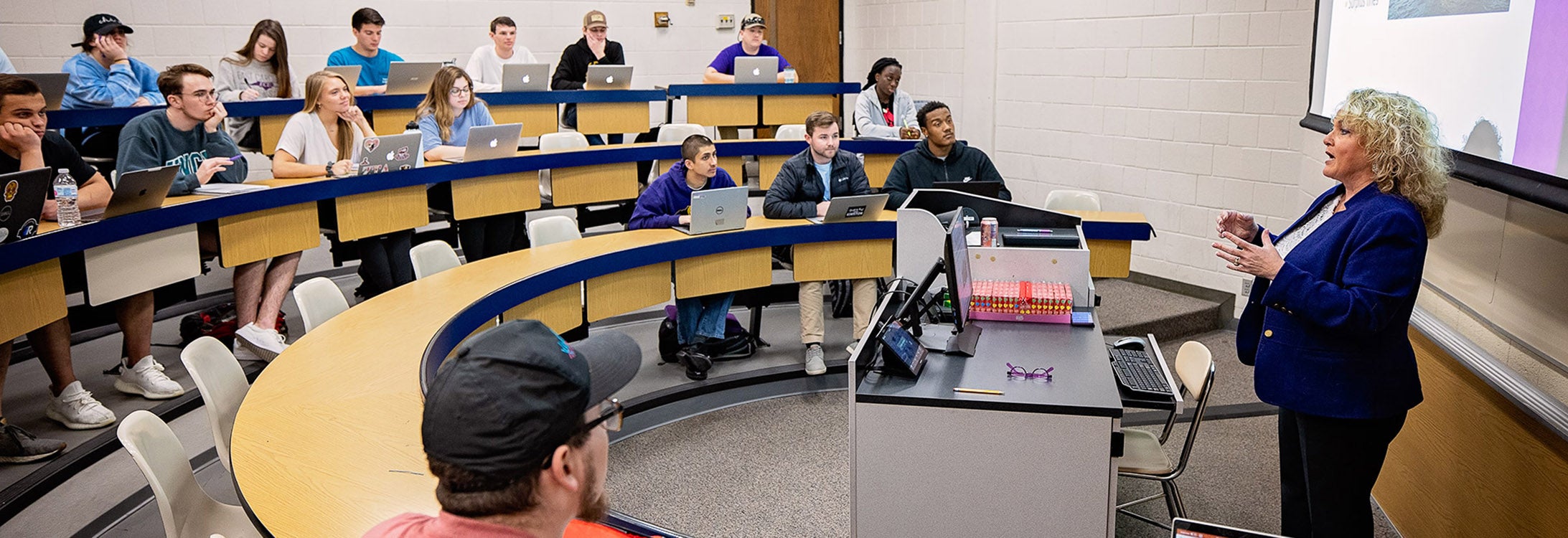COOL CLASSES
Seventeen of the most unusual, unique classes at ECU this year
Picking the perfect class schedule can be daunting, but that doesn’t mean it can’t be fun. East Carolina University has plenty of interesting and offbeat class offerings for fall and spring semesters. If you’re a student, you just might want to make room for another elective.
ANTH 1001: Aliens, Atlantis and Archaeology
Did aliens build the pyramids? Does Atlantis really exist? Are mermaids real? This course critically examines some of the extraordinary theories concerning archaeological sites and artifacts. Students will learn how to assess claims about the past and gain an appreciation of its many different reconstructions, though not all are equally plausible.
ANTH 1200: Anthropology of Monsters, Zombies and Vampires
This course uses an anthropological lens to look at how mythical species, creatures and monsters are treated in various societies. Students will deconstruct the reasons why humans fear monsters and what monsters have come to symbolize in cultures. Bonus: One way to get extra credit in this class is to dress up as your favorite monster, take a selfie and send it to the professor.
ART 1827: Photography Changes Everything
People will take more than 380 billion pictures this year. This course introduces students to the language of photography and includes making photographs, evaluating the content and craft of photographs and researching the impact of imagery. It will show students how our lives have been and are transformed by our interactions with images.

Taking a photo is as easy as pulling out your phone in 2021. But learning the art of photography? That you can pick up at ECU. (Photo by Cliff Hollis)
BIOL 4150: Pestilence, Politics and Conquest
If you have somehow not tired of hearing about infectious diseases and pandemics in the last year and half, this course is for you. This biology class looks at the strengths and weaknesses of the human immune system and examines the history of infectious diseases from the Stone Age to today, including the bubonic plague, salmonella, influenza and COVID-19. Students will explore the social, psychological and economic impact of epidemics and pandemics, trying to develop an awareness of the threats we will face in the future. Will the next Fauci please stand up?
CLAS 1600: Sex, Spells and Sacrifices: Religion in the Classical World
For anyone who watched one (or six) cult documentaries on Netflix during stay-at-home orders. This classical studies course looks at religious ideas, practices and beliefs in the ancient Mediterranean world. Topics may include mystery cults, festivals and games, sacred places and sanctuaries, sacrifices, prophecy, witchcraft and magic.
COAS 2025: Survey of Coastal and Marine Resources
COAS 2025 students study the natural and physical aspects of coastlines and oceans as well as how people use, manage and govern coastal and marine ecosystems. The course is being offered in Greenville this fall but is part of the Semester at the Coast program at ECU’s Outer Banks campus on Roanoke Island in spring 2022. The semester-long program immerses students in the coastal environment and provides hands-on field and lab-based experiences.
ENGL 1500: Topics in Words, Images and Ideas — Black Family Sitcoms: Laughter and Politics
This course is a survey in Black family sitcoms of the 20th and 21st centuries. It aims to contextualize the emergence of Black family sitcoms as vehicles used to confront, resist and respond to significant but marginalizing historical and political shifts. It also looks at the motivation to laugh rather than cry, articulating the important and participatory politics of joy.
GEOL 1010: Geology Goes to Hollywood
Students learn geological concepts and processes with special emphasis on earthquakes, tsunamis, volcanoes and hurricanes. Then they watch blockbuster movies like “Armageddon,” “Deep Impact,” “San Andreas” and “The Core,” followed by a discussion of their scientific accuracy. The course focuses on how science is perceived in Hollywood films and the real societal impacts of geological processes.
HIST 6850: Field School in Maritime History and Underwater Research
This field school examines the remains of underwater heritage along the waterfronts of Washington and Badin Lake in North Carolina. Vessels wrecked or abandoned in Washington were initially documented by ECU in 2004, and students will collect data to see how these sites have changed over time. The location of a U.S. Navy B-25 bomber crash in Badin Lake has never been located, nor have the servicemen been recovered. Field school students will conduct a landscape survey of sites related to the crash and assist with oral history collection from community members.

ECU students document their research during a shipwreck investigation in Washington, N.C. (Photo by Rhett Butler)
HIST 6525: Sea Power
Any Pirates worth their salt would do well to understand the history of the high seas. HIST 6525 covers naval power from ancient times to the present. It’s mainly concerned with how technology and naval military might shaped history, focusing on European and American military history.
HIST 3907: Pirate Nation — An ECU History
What better way to learn about the school you love? Take this class and become an official expert on all things ECU. Students survey East Carolina’s history from the movement to establish a teachers’ training school through ECU’s development as a major research institution.

Boost your ECU knowledge with a class dedicated to the history of all things Pirate. (Photo by Cliff Hollis)
HNRS 2013.001: Economics of the Wine and Craft Brewing Industries
The United States consumes more wine than any other country in the world. As such, the wine industry is receiving increased attention by economists. Same goes for the craft-beer revolution. The objective of this course is to provide an understanding of both the economics of the U.S. wine and craft brewing industries. (No word on field trips or samples, though.)
HNRS 2011.003: Global Understanding — Idioms, Proverbs, and Untranslatable Words
In this class, students investigate the relationships between language and culture and connect with students at ECU’s partner universities around the world through virtual exchanges. Students will also consider what language can reveal about culture, especially through the exploration of idioms, proverbs and untranslatable words.
KINE 1010: Fitness Walking
Studies show there can be substantial health benefits to using a pet to be more active. The Department of Kinesiology is ahead of the curve with its fitness walking class. For the past eight years, it has partnered with the Pitt County Animal Shelter to have students walk shelter dogs for class credit. Cute dogs + exercise = win-win.

ECU fitness walking students can pet dogs like Duke during their course with the Department of Kinesiology. (ECU Photo by Rhett Butler)
POLS 3050: Social and Protest Movements in the United States
There’s a long history of protest in the U.S. This course examines major social and protest movements, including women’s suffrage, civil rights and the rise of the religious right. It also compares protest tactics, such as economic boycotts and marches.
RCSC 4800: Great Smoky Mountains Outdoor Field Experience
This spring class takes students to the Great Smoky Mountains National Park, the most visited national park in the U.S., for a firsthand look at natural resource management and park operations and tourism. Students meet once a week to plan the trip and learn about the park, then spend a week in the field. In addition to ECU, the trip has faculty and students from N.C. State, Penn State, the University of Missouri, Western Illinois University and Texas A&M.
THEA 3019: Stage Combat — Rapier and Dagger
Learn to expertly wield weapons for armed stage combat. This acting class shows students how to safely present theatrical violence and develop partnering and technical stage combat techniques for sword work. En garde!
Related Stories:
THE PIRATE EXPERIENCE: In-person activities will welcome students to campus
ECU’s wildly popular personal finance class teaches students practical money skills
